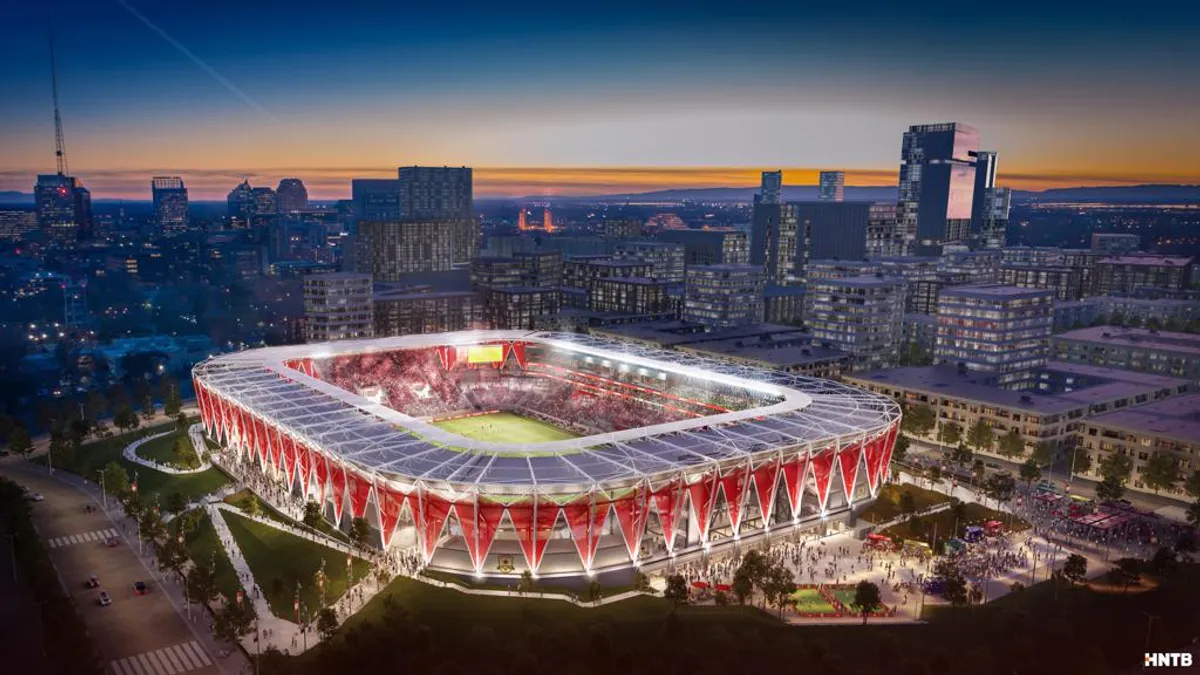Dive Brief:
- The Sacramento City Council voted unanimously Thursday to approve the terms for a $252 million soccer stadium, a move that will help the Sacramento Republic FC and the city meet the requirements for a Major League Soccer expansion award.
- Investors and the team would privately finance construction of the stadium, as well as operate and maintain it, and provide new area infrastructure for the stadium property and an adjacent parcel that will be used for ancillary development. The city would reimburse the team for certain infrastructure costs through an Enhanced Infrastructure Financing District; absorb almost $2 million of internal administrative, permitting and inspection costs; and reimburse the team for construction excise and use taxes.
- Stadium construction is expected to create between 1,310 and 1,640 jobs, while infrastructure work would generate up to 245. The team would also develop construction internship programs; hire small and disadvantaged workers and subcontractors; provide a community soccer field or futsal court; and allow public access to the park and trail areas around the stadium.
Dive Insight:
Of course, this plan will only come to fruition if the MLS awards Sacramento a franchise. The city of St. Louis, Missouri, is also in the running and several other metros are pursuing a franchise as well.
MLS preferences are helping to drive soccer-specific stadium construction, with league officials telling potential franchisees that they have a better chance to score an MLS slot if they have plans in place to build one. Detroit was a favorite to win a place in the league in a previous expansion selection round, but it is widely thought that developer Dan Gilbert’s decision to designate the existing Ford Field — where the NFL’s Detroit Lions play — as the city's soccer stadium rather than build a new one was one of the reasons Detroit has been passed over by the MLS.
Meanwhile, cities that have won franchises recently are busy making good on their commitments to build new soccer-specific venues. Common design features include special standing-only sections where fans can hold signs, as well as overhangs and seating sections that maximize and even increase noise and vibration during a match.
FC Cincinnati broke ground on their new $200 million, 21,000-seat stadium at the end of last year. The team reportedly is sinking $350 million into construction and licensing fees while the city is paying for $75 million of infrastructure around the new venue. Turner Construction, in partnership with local company Jostin Construction, will act as general contractor. Machete Group will also perform planning and project management functions. If the project stays on schedule, FC Cincinnati will play its first home match there in 2021.











